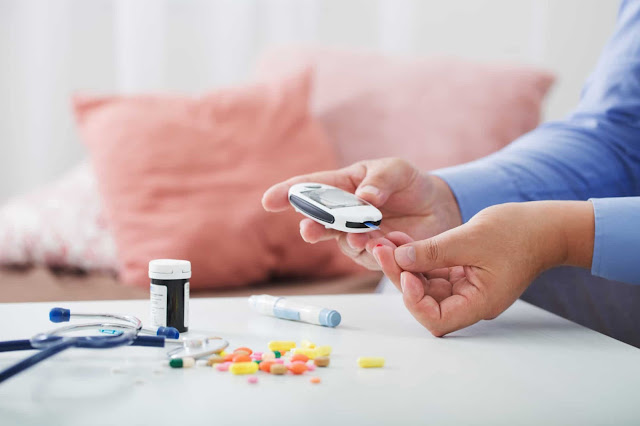The Best Medicine For Diabetes – The Symptoms of Low Blood Sugar
If you have diabetes, you should know the symptoms of low blood sugar. Everyone's body reacts differently to low blood sugar, and different people have varying degrees of low blood sugar symptoms. Some people have no warning signs of low glucose, and must rely on regular blood glucose tests. Other people don't experience symptoms at all and must rely on glucagon injections to treat hypoglycemia. Regardless of your specific circumstances, it's important to know the signs of low blood sugar.
While many people have low blood sugar symptoms in the morning, many have no such diabetes symptoms. Other people don't experience any of these symptoms, but they should consult their healthcare provider if they have these symptoms. A person with diabetes should keep a close eye on their blood glucose levels. It's especially important to check their blood sugar level before eating, especially if they're exercising or sick. While the symptoms of low glucose may be the same, it's best to check it at least once a day and call a doctor immediately if you notice any of these signs.
While some people have a hard time telling when they have a low blood sugar level, they should avoid alcohol, soda, and other foods high in sugar. If you're experiencing any of these symptoms, contact a doctor right away. They will likely be able to give you a prescription drug to diabetes treatment your hypoglycemia. If you have a suspicion that your blood sugar is too low, check it yourself using a home meter first. If your blood sugar is still low, eat a higher portion of your usual meal.
The most important thing to do if you're experiencing any of the symptoms of low blood sugar is to get some sugar as soon as possible. A drink or snack that contains a little sugar before bedtime will help your blood sugar quickly return to normal. You should also take some best medicine for diabetes to help prevent future episodes of low blood sugar. You should also check your glucose level before bedtime to make sure you're getting enough carbohydrates.
Another common sign of low blood sugar is slurred speech. You may sound like a drunk person when speaking, but your speech is slurred. The include a decreased appetite and feeling shaky. Moreover, your energy level is erratic, and you may lose consciousness. You should try to eat a small meal at regular intervals to keep your blood sugar levels normal.
If you notice that your blood sugar is low, try to drink a small amount of sugar. Usually, you can take a teaspoon of honey or corn syrup in a glass of water. After this, drink another half-can of soda. You can also eat 15 to 20 grams of glucose or carbohydrates. Repeat these steps until your blood sugar levels are back to normal. If you're still experiencing these symptoms after drinking your sugar-lowering drink, you should eat a healthy snack.
If your blood sugar levels are low, you should take some insulin. Having an extra snack after insulin shots is recommended to prevent hypoglycemia. Moreover, you should always adhere to your diabetes management plan. You can check your blood sugar levels regularly. Carry a sugar with you, and you should consume it as soon as you feel any of the above symptoms. The best thing to do is to consult your healthcare provider. You can share your records with them, so they can help you manage your diabetes better.
If you're experiencing these symptoms, it's important to seek medical attention immediately. It's important to stay away from high blood sugar and make sure you know the symptoms of low blood sugar. When these symptoms become serious, you should seek medical attention immediately (sugar ki dawa). You should know how to deal with them if you're diabetic. If you have diabetes, you should be aware of the signs of hypoglycemia. A shaky feeling, blurred vision, and extreme thirst are all common. You should always consult a healthcare professional. They can help you determine the cause of your hypoglycemia and prescribe the right medicine for you.
The signs of low blood sugar may be difficult to recognize and are often accompanied by confusion and drowsiness. If you're not sure how to handle the symptoms, ask your doctor to check your blood sugar levels and advise you accordingly. If you have symptoms of hypoglycemia, it is crucial to seek immediate treatment. If the symptoms persist, seek medical attention immediately. If your doctor diagnoses you with hypoglycemia, it's crucial to know the correct medication.




Comments
Post a Comment